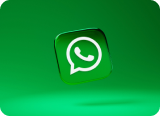Top Digital Marketing Platforms in 2024 – And How They Boost Your Business

We live in the digital age. Today’s customers practically live online. They do all their pre-purchase research online and consume a variety of digital content (images, text, videos, etc.) before deciding on a purchase. If you are a business that really wants to catch your customer’s eye and engage with them, being present on popular digital communication channels is a must. You need to routinely interact with your audiences, talk to them, create content (blogs, case studies, e-books, social media posts, videos, podcasts, influencer marketing, etc.) and build communities – only then can you expect to stay on top of your customers’ minds and win their trust and loyalty. Brands that are still depending only on traditional marketing channels like TV ads, flyers, phone calls, etc., are practically living on borrowed time. They really need to catch up with digital or risk falling behind competitors who have pivoted to digital communication platforms for marketing their products and services.
Which Are Some of the Top Digital Marketing Platforms in 2024?
In the fast-changing world of digital marketing, it’s important to find out which are the main platforms available and what each one brings to the table in order to create a successful online marketing strategy. From social media giants to messaging platforms and time-tested avenues like email, each platform offers unique opportunities to connect with your audience. Let’s dive into some of the most popular digital marketing platforms of 2024 and explore what they offer. Digital marketing can be carried out across several channels including:
Social Media Channels like Facebook, LinkedIn, Instagram, TikTok
These are powerhouses for social media marketing. Widely popular with a huge base of active users, these platforms offer sophisticated targeting options based on user behavior, interests, and demographics. With a variety of ad formats, from simple image ads to interactive stories, and even influencer marketing (in case of IG, Tiktok, Facebook), businesses can craft compelling narratives that resonate with their audience on these platforms. They help brands tap into a vibrant and dynamic user base.
Messaging Channels like WhatsApp, Viber and Apple Business Chat
As messaging apps that facilitate direct and personal two-way communication, these channels offer several advantages and opportunities for brands looking to engage with their audience in a more intimate and immediate way. The WhatsApp Business API, Viber Business Messages, and Apple Business Chat offer features like automated messages, quick replies, catalog listings, rich messages (which supports text, images, videos, documents, etc.), making them a great vehicle for different marketing campaigns. You can share marketing messages related to product launches, special offers, insights, promo codes, back-in-stock alerts, feedback surveys, abandoned cart recovery, and more. They also have the capability to segment your audience based on various criteria, such as demographics, purchase history, and engagement level. This enables more targeted and relevant communications, increasing the likelihood of conversion.
Push Marketing
The push channel allows businesses to send messages directly to a user’s device or browser, effectively engaging them with timely, relevant content. They are delivered in real time, have better visibility as they pop up right before the customer’s screen, are highly action-driven, and can even target customers based on their location. They drive-up app usage significantly.
SMS Marketing
With almost every person having access to a mobile phone, the reach of SMS marketing is humongous and extends to include those without internet access or smartphone capabilities. Almost all mobile devices support SMS, so it’s a great way for your business to reach customers who are not active on other platforms in a cost-effective way.
Email Marketing
Despite the availability of newer marketing channels, email marketing remains a cornerstone of digital marketing strategies for businesses across various industries. Its enduring relevance is attributed to its combination of high efficiency, cost-effectiveness, and direct engagement capabilities. While sharing marketing content on email, you can include links to your website and increasing your website’s traffic and potentially boost sales and conversions. Email marketing platforms also provide you with detailed analytics, including open rates, click-through rates, and conversion rates to help you measure the effectiveness of your campaigns.
In-App Marketing
In-app marketing is a crucial strategy for businesses looking to maximize the value of their mobile applications. By leveraging the intimate and interactive nature of the app environment, brands can deliver personalized, relevant, and timely marketing messages that drive engagement, loyalty, and conversions. When the user is active within the app, they can be shown marketing materials such as pop-ups, banners, or full-screen messages, often used to promote offers, new features, or content.
Google Ads
As the most widely used pay-per-click (PPC) advertising platform, Google ads allow businesses to display ads across Google’s vast network, including its search engine results pages (SERPs), YouTube, and partner websites. The platform’s strength lies in its immense reach and the depth of targeting options, from keyword targeting to audience demographics.

What are the Top Benefits of Digital Communication Platforms?
For businesses that have done most of their marketing through traditional channels, the transformation to digital can feel overwhelming, but the risks of standing still are much greater. Digital marketing platforms offer way more value than traditional marketing channels. With traditional channels like a banner or a TV ad, you don’t know who is watching them and taking action, but in digital you do. Also, digital has a much wider reach and is less expensive than traditional marketing. Let’s look at some of the other top benefits of digital marketing platforms for your business.
Easily Accessible with a Wide Reach: Digital channels enable organizations to communicate with a global audience without any geographical limitations. Social media, email, and websites allow businesses to reach customers anywhere in the world, expanding their reach and customer base. What’s more, digital communication channels are accessible 24/7 from any place that has an internet connection. This accessibility ensures that businesses can communicate with their audience at any time, and customers can access information and services whenever they need them.
Cost Effectiveness: Compared to traditional marketing methods like print media or television advertising, digital channels are significantly more cost-effective. They allow for the distribution of information at a fraction of the cost, making it accessible even to small businesses with limited marketing budgets and levelling the playing field.
Real-Time Communication: Digital platforms facilitate instant communication, enabling businesses to share marketing campaigns, respond to customer inquiries, and resolve issues in real-time. This immediacy enhances customer service and satisfaction.
Trackable Results: Digital channels provide data that can be used to personalize communication, ensuring that messages are relevant to the individual recipient. This personalized approach can increase engagement, customer loyalty, and conversion rates. For example, you can send targeted campaigns on emails etc, something that is not possible with traditional channels.
Interactivity: Digital communication is inherently interactive, allowing for two-way conversations between businesses and customers. Messengers like WhatsApp and Viber facilitate high-quality, two-way interactions that help you reply to customers when they respond to your marketing messages. This interactivity fosters engagement, builds relationships, and increases chances of sales significantly. What’s more, it allows your business to gather valuable feedback directly from your audience.
Measurability: One of the most significant advantages of digital channels is the ability to measure the effectiveness of communication efforts accurately. Analytics tools provide detailed insights into engagement rates, conversion rates, and ROI, enabling businesses to optimize their strategies for better results.
Retargeting and Remarketing Possible: Retargeting is one of the big pluses of using a digital channel for marketing because you have the exact data on which audience is no more engaging with you and then sharing personalized offers with them. Remarketing is a way to connect with visitors to your website who may not have made an immediate purchase or inquiry. It allows you to position targeted ads in front of a defined audience that had previously visited your website as they browse elsewhere around the internet.
Multimedia Integration: Digital platforms support a wide range of media, including text, images, video, and audio, making communication more dynamic and engaging. Multimedia content can enhance message delivery and appeal to different preferences.
Scalability: Digital communication strategies can easily be scaled up or down based on business needs and growth. This flexibility allows businesses to adapt their communication efforts to their current situation without significant investments.
Sustainability: Digital communication is more environmentally friendly than traditional print methods. By reducing the need for paper and physical materials, businesses can lower their carbon footprint and contribute to sustainability efforts.
Things to Consider Before Choosing Right Channel for Digital Marketing
It’s important to understand that each channel offers unique advantages and capabilities. Not all channels may be suitable or financially viable for your business. By understanding what each platform brings to the table, you can craft a multifaceted strategy that helps you reach your target audience effectively, maximizes engagement, and drives conversions. The key to success lies in selecting the platforms that best align with your business goals and audience preferences. A few things you need to do is to know your audiences really well, see which platforms they hang out on, what kinds of content are they engaging with, their interests, and so on. Talking of content, it’s a good practice to find which keywords are trending and focus on your content plan accordingly. Also, make sure your digital marketing is an integrated effort – try to connect as many channels as possible to create a cohesive and comprehensive marketing strategy.




![[photo]](https://edna.io/wp-content/themes/edna/images/authors/rajrupa-ghoshal.jpg)
![[icon]](https://edna.io/wp-content/themes/edna/images/authors/ico-linkedin.svg)